Movie Review – Shutter Island
Stars well, finishes poorly, Shutter Island is a misfire of gargantuan performances from a director somehow out of his depths here. Scorsese’s ability to compose shots and utilise subtext is superb, but the script suffers from being too clever by half, and the cast of brilliant actors are underutilised (or miscast). Shutter Island isn’t one of the master director’s best efforts.
– Summary –
Director : Martin Scorsese
Year Of Release : 2010
Principal Cast : Leonardo DiCaprio, Ben Kingsley, Mark Ruffalo, Max von Sydow, Michelle Williams, Emily Mortimer, Jackie Earle Haley, Ted Levine, Patricia Clarkson, Elias Koteas.
Approx Running Time : 2hrs 10 minutes
Synopsis: US Marshall Teddy Daniels travels to Shutter Island to uncover the mystery behind the disappearance of one of the inmates. Shutter Island is used by the Government as a prison for the criminally insane, and is filled to the brim with secrets, psychos and shadows. The more Teddy uncovers, the more he begins to doubt his own sanity, until the uncovering of the Island’s darkest secrets threatens to send him over the edge!
What we think : Starts well, finishes poorly: Shutter Island is a confusing misfire from a director somehow out of his depths here. Scorsese’s ability to compose shots and utilise subtext is superb, but the script suffers from being too clever by half, and the cast of brilliant actors are underutilized (or miscast). Shutter Island isn’t one of the master director’s best efforts.
**********************
I have a great respect for Martin Scorsese. Anybody who’s watched his amazing documentary on cinema history (A Personal Journey With Martin Scorsese Through American Movies) will understand the sheer passion and knowledge for the medium, and if there’s anyone living today who should be able to create eminently classy films, it’s him. Which makes the result of Shutter Island something of a mystery in itself, since it’s really… well, not that good. I’m loathe to say it, but I found it tedious and confusing, especially towards the end. It seems in keeping with Scorsese’s films since the turn of the millennium: decidedly dull – with the exception of the excellent The Departed. Bear with me. The Aviator, boring as balls. Gangs Of New York, underwhelming and pretentious. Shutter Island, confusing and pretentious. I have to admit the departure of Scorsese from the raw grittiness of pulp drama and Gangster epics for the slickly produced and hi-def affairs of recent years, has resulted in a deficit of quality. At least, in my eyes. No doubt the Scorsese fanboys will rip me apart for saying so, but the Master hasn’t delivered the knockout punches he gave us with films like Casino, Cape Fear, Raging Bull, Goodfellas and Taxi Driver. I’d go so far as to say his last truly great dramatic film, purely on a storytelling level (which precludes The Departed based solely on the performance of Jack Nicholson) was Bringing out The Dead. With his reputation slowly and surely going down the tube, with the exception of “gritty crime drama” The Departed, Scorsese takes on another challenge, this time a psychological thriller putting current male muse DiCaprio up against Ben Kingsley in this, Shutter Island.
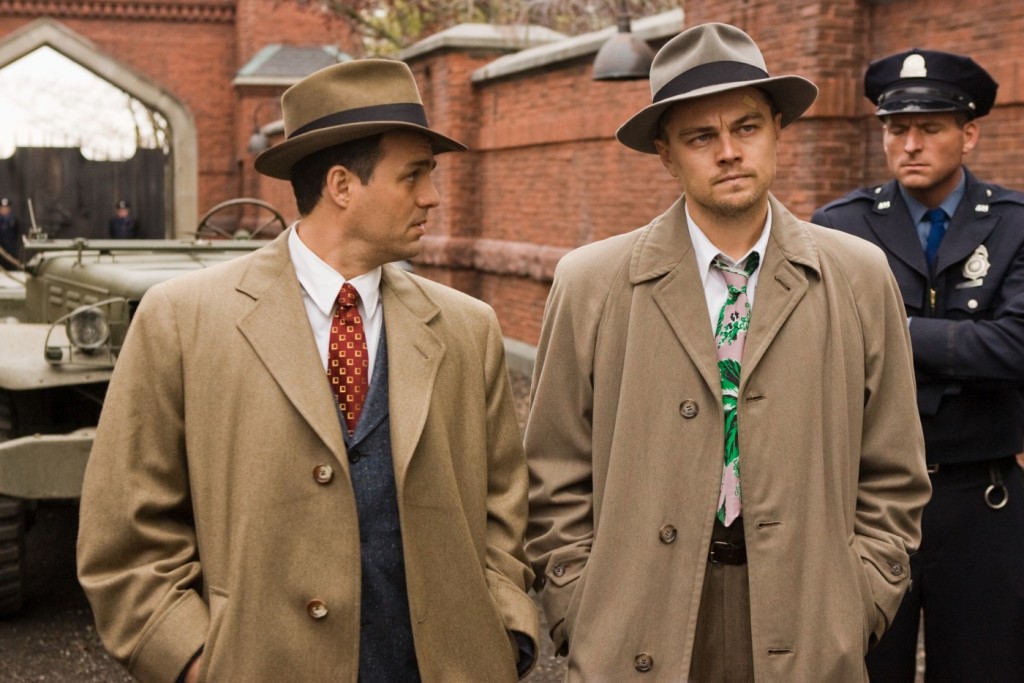
Based on Dennis Lehane’s novel of the same name, Shutter Island tries to be a spooky, tense thriller, filled with twists and turns. Teddy Daniels (DiCaprio), a US Marshall, is sent to the mysterious Shutter Island, out in Boston Harbour, to investigate a disappearance of one of the inmates: the island is the home to a government-run psychiatric facility housing the criminally insane – murderers, rapists and other violent offenders. Teddy is accompanied by his new partner, Chuck Aule (Mark Ruffalo), who seems a little inexperienced but assures Teddy that he’s had plenty. The facility, Ashecliff House, is run by Doctor John Cawley (Ben Kingsley), a calm and assured man who is trying to help his patients to overcome their varied degrees of insanity. Teddy, who slowly develops a migraine over the course of the first few hours on the island, has dreams and flashbacks to his time as a US soldier during the liberation of Dachau during World War II, an experience that appears to have changed him deeply. We learn that Teddy’s wife Dolores (Michelle Williams) and his daughter were killed in a fire a couple of years earlier, and the man who started the fire is housed somewhere on the island. As Teddy and Chuck begin their investigation into the disappearance of the female inmate, Rachel Solondo, they begin to uncover discrepancies in the facilities records, and statements from the orderlies and prison officials don’t jibe. Teddy’s personal crusade to save Rachel Solondo, to solve her disappearance, is crushed when the woman turns up, back in her cell, unharmed and seemingly none the worse for her ordeal during a particularly stormy, ferocious night on the island. As the film progresses, Teddy begins to doubt everything he sees and hears, and even has doubts about his own sanity, leading to a shocking (well, kind of!) revelation that will see his life spin out of control.
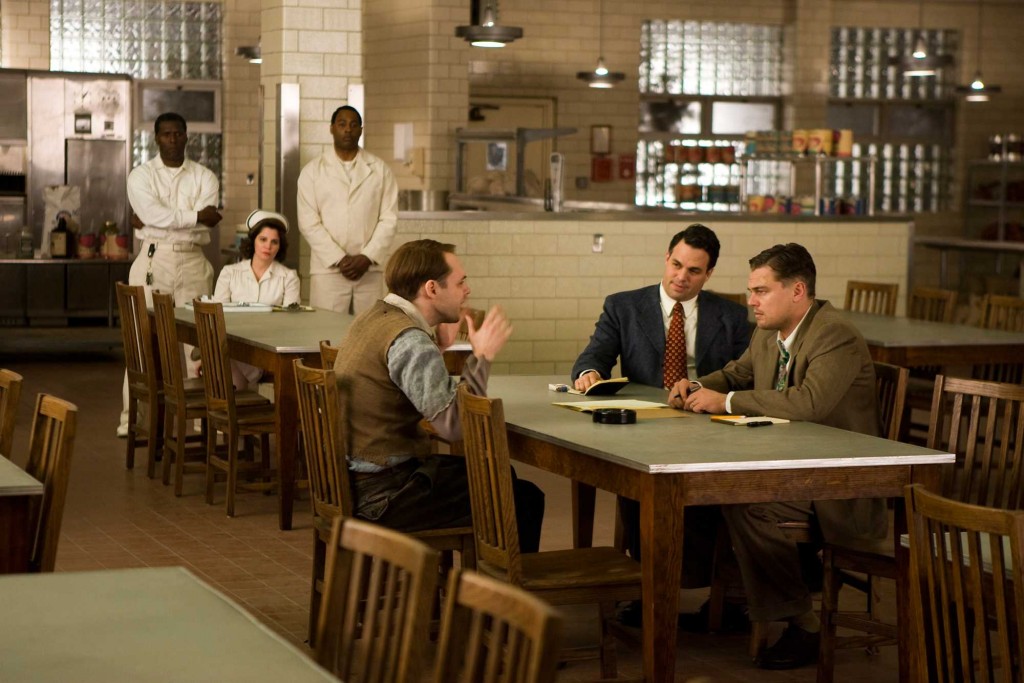
Ahh, the exploration of insanity. Such a great fodder for film-makers, as they seek to baffle, bamboozle and confuddle us, the poor viewer, with red herrings and visual sleight of hand. I admit to having a low tolerance towards films that blatantly seek to screw with my head, and couldn’t list on the fingers of one hand the number of films that actually succeed in getting away with it. Fight Club comes to mind immediately, as a significant success in the last decade or so. The problem with films like this is that they often run the risk of simply alienating the viewer with supposedly “profound” twists and turns, often being too baffling for their own good. It takes a seasoned filmmaker to create a film that takes you on a journey into madness, without driving you mad with frustration at it all. David Fincher has made an living from it. David Cronenberg flirts with disaster much too often for my liking, and he’s considered a success in this area. I had hoped that Martin Scorsese was able to join their ranks: if anyone understands the art of film, it’s the man who gave us “You talkin’ to me?” He knows what madness really is. The human condition, skewed towards outright insanity. Unfortunately, Scorsese gets caught up in his own cleverness, unable to drag a coherently plausible storyline from Lehane’s novel, instead delivering a predictably confusing trip into Teddy Daniels’ whirlpool of madness. I think where Scorsese fails to hit the mark is with the films obvious genre leanings: Shutter Island tries to be a pulp psycho thriller, complete with drooling prison inmates, a number of traumatic deaths in flashback, a tortured lead character, and numerous secondary characters right out of One Flew Over The Cuckoos Nest. Indeed, often I found myself thinking about Milos Foreman’s masterful film, and how similar Shutter Island was with its handling of the mentally insane. Unlike Foreman’s work, Scorsese opts for gratuitous genre snares; namely the seemingly benign Doctor who may not be all he seems, the mysteriously knowledgeable patients who advise out hero to run, run run, a monolithic place somewhere the main character can’t ever seem to get to (in this case, a lighthouse on the very edge of the island), and the unique (but discordant) musical score that sounds more like a fifth grader’s been let loose on the recording stage. There’s a lack of subtlety to it all, especially towards the film’s finale, fractured conclusion, in which Teddy comes to a realisation (I won’t spoil it) and his world really spins out of control. Scorsese sets us up for the fall, and like lemmings we gladly hurl ourselves off the cliff – at least, initially. The pulpish opening act of the film, introducing Teddy and Chuck on a ferry heading across the harbour to the island, is vintage Scorsese, right up until the first hint of “not all is well” starts to kick in about twenty minutes in. Knowing the film is going to be somewhat creepy, you’re expecting something to be wrong, and so you’re looking for it. Scorsese doesn’t even hide the fact, hammering home key visual clues throughout the film to let us know that we should be paying attention. Hitchcock did this kind of thing and the audience had no idea what they were seeing.
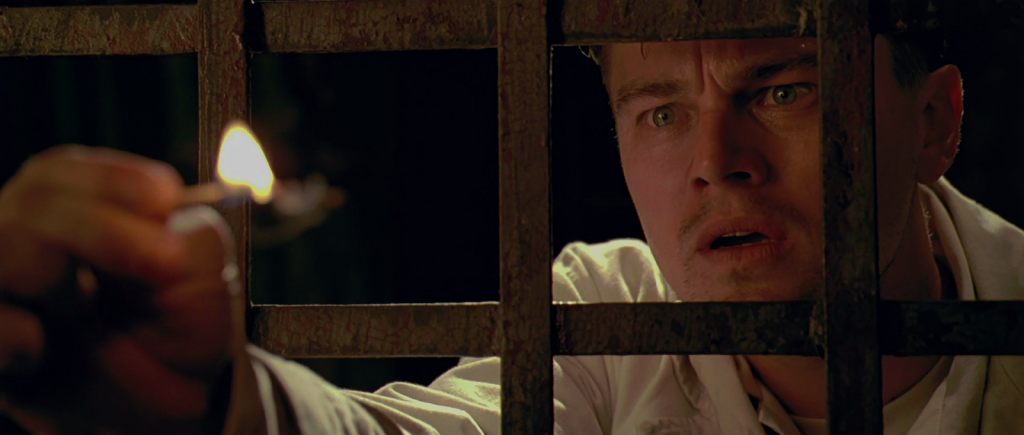
Aside from Scorsese’s somewhat hamfisted handling of the mystery element of the film, I felt he often underused his excellent cast in bafflingly incoherent ways. Max Von Sydow, one of the truly great actors who’s ever been captured on film, is reduced to a second-rate bit part with less than zero consequence to the film overall: he’s an obvious red herring utilised to hook you into the whole “ex soldier harbouring a grudge against the Nazi’s” subplot, a part of the film that, while interesting initially, manages to go nowhere by the time the film ends. Von Sydow gets about three scenes, none of which do anything for the plot (as far as I could tell, anyway). Mark Ruffalo looks for all the world like he’s a little boy lost amongst the aura of working with both Scorsese and DiCaprio, he stumbles and muddles along with a pre-obesity Brando-esque style as Chuck, who probably isn’t as he seems either. Shutter Island is essentially a love-project for the director and Leo DiCaprio, and while DiCaprio is captivating as Teddy Daniels, the material he’s given in the script leaves little for him to work with. The descent into madness, due to his previous traumatic event, is well handled by both director and star, but they’re too little too late by the time the climax of the film takes place. Bit-roles to Jackie Earle Haley (almost unrecognisable) and Elias Koteas (completely unrecognisable), as well as bizarre characters like the warden (Ted Levine), make for a very large number of “so cool if there were more of them” scenes, all undoing the great work of the films’ opening. But the major failure of Scorsese’s casting department is Michelle Williams as Teddy’s wife, Dolores. For the entire film she’s a figment of Teddy’s memory, and a strangely androgynous one at that. Williams isn’t cut out to play crazy, and her mutual destruction of Teddy’s mind and our perceptions is as unconvincing as the scripting on The Phantom Menace. Williams isn’t up to snuff with the rest of this great cast, and it shows. She’s out-acted by DiCaprio in every one of their scenes, and of all in the film, hers is the weakest link. It shouldn’t have been, considering her link with Teddy is among the film’s key plot devices.
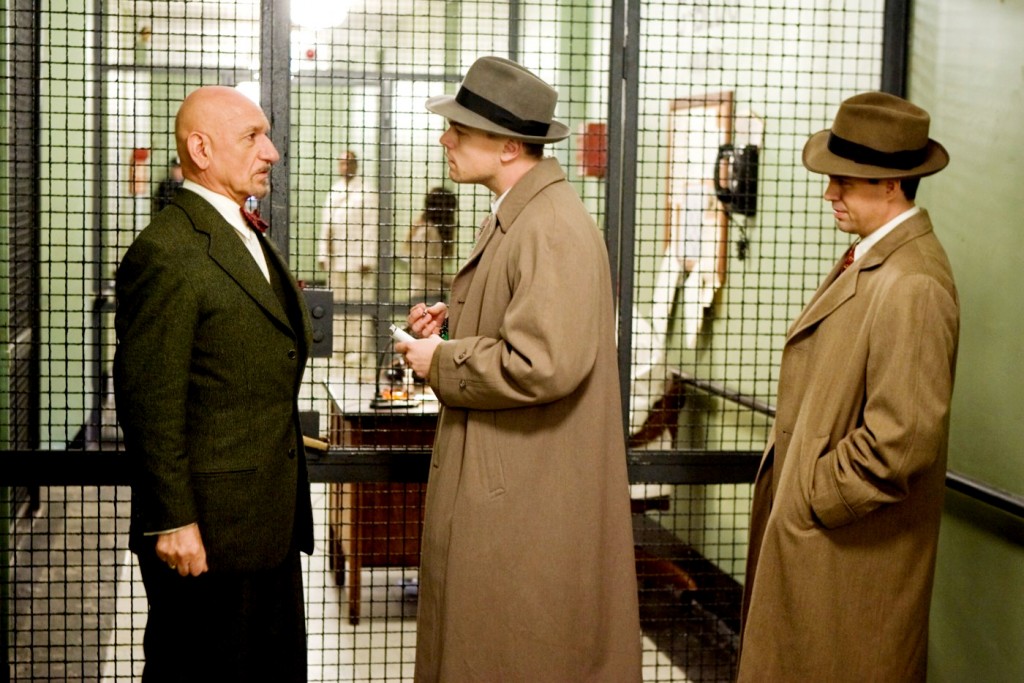
DiCaprio himself is excellent, a solid performance that ranks alongside Inception as his best character work in the last few years. The man sure can act, that’s a fact. It’s just a problem that he’s besotted by working with Scorsese, who has managed once again to make a film hinging solely on the performance of his lead actor. However, DiCaprio doesn’t come close to capturing the sense of character Jack Nicholson did in Cuckoo’s Nest, a film with which this one bears a quite similar overall tone. He does his best to convey the resolute madness as he sinks into insanity, delivering a performance beyond the complexities of the script, but in saying that, he’s undone by the fact the script isn’t that good in its development of Teddy as a character – DiCaprio brings more to it that the script does. Ben Kingsley, who is as solid an actor as they come, is again brilliant in a pivotal (yet emotionally limited) role, the kind of character he plays so very well. I don’t imagine Sir Ben ever being cast as a John McLaine type character, but he does suave slimy very very well. Both DiCaprio and Kingsley do themselves proud in Shutter Island. The film is essentially a try-hard ensemble piece with Leo getting the lions share of action, but neither the script nor Scorsese’s often heavy-handed direction can mould this into anything substantial.
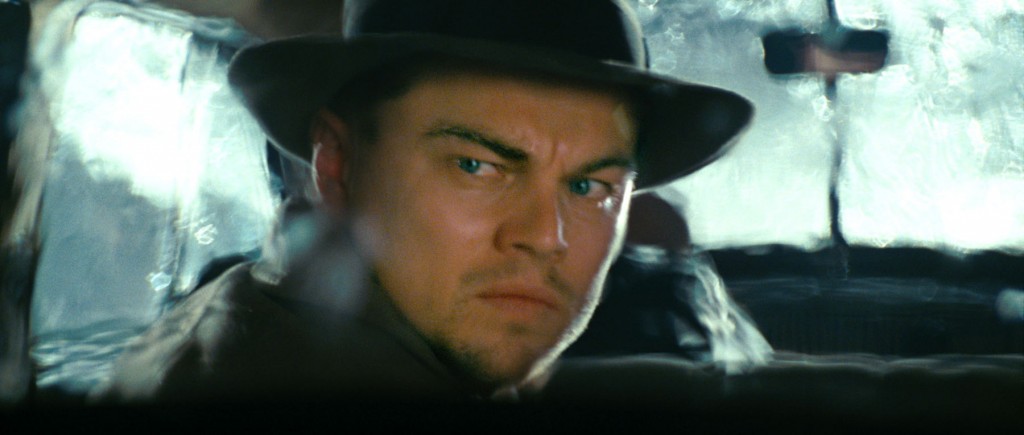
On a production value level, Shutter Island is a unique beast. The score is a series of modern-classical pieces, chosen by long-time Scorsese collaborator Robbie Robertson, to suit both the mood and schizophrenic narrative of the film: at times, I though the score entirely ridiculous (much like the “score” from Kubrick’s Eyes Wide Shut, with that single banging piano note substituting for actual music), although at others it suited the film perfectly. The choice to use classical music as opposed to a traditional orchestral score was brave, and alternates between a wise choice and an idiotic one in the final film. Often, I just found the score aggravating. Editorially, Scorsese regular Thelma Schoomaker must have relished getting her hands on the material the director was shooting. The film looks amazing, it must be said, the visuals a far cry from some of Scorsese’s earlier works, and the chance to manipulate this footage would have been wonderful. Schoonmaker does a great job trying to accomplish the unaccomplish-able: making Shutter Island true to it’s literary roots as well as audience friendly. Bafflingly lengthy flashback sequences, often decidedly melancholy and dreary, tend to keep the audience from connecting with Teddy’s present day situation, the story we actually want to see. Perhaps a tightening up of these scenes could have added much to the films tension, rather than drag it out into something akin to psychological melodrama.
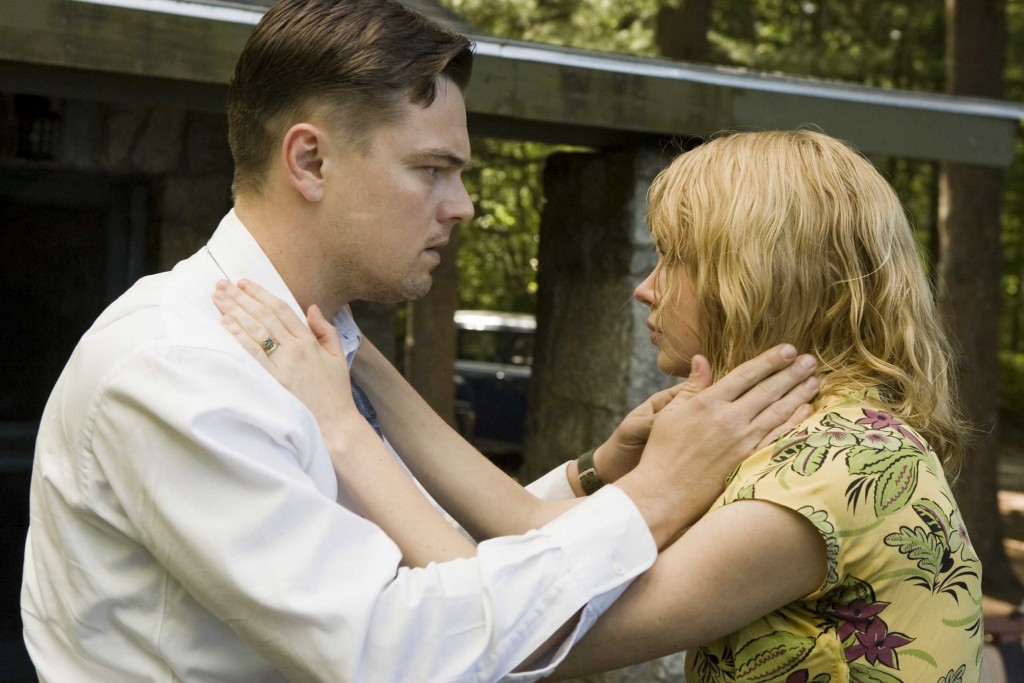
Shutter Island tries hard to keep us guessing; so often, it seems, that we give up caring about why we should care. The characters eventually flail about in a script lost in its own convoluted pretension, a film devoid of emotion that smacks of being too clever by half. Ultimately, Shutter Island is an empty journey into a man’s fractured psyche, a journey that has no real emotional core, and most certainly no appreciation for at least trying to keep your audience interested. If I cold be so bold, Milos Foreman (and Jack Nicholson) did it better.


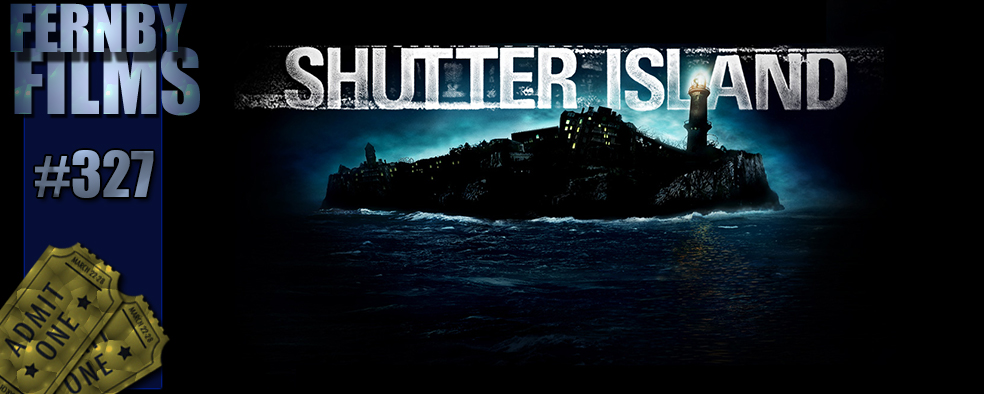

 The Wolf of Wall Street Review
The Wolf of Wall Street Review







Great review Rodney. I haven't seen the film yet but was looking forward to it. Seems like Scorsese's latest is splitting audiences – I've read good and bad reviews. By the sounds of things the problem lies with the script?
Yeah, I think you could lay the majority of Shutter Island's problems at the feet of the scripting; the cast do a pretty good job under the circumstances, it's just that they don't have a lot to work with. Scorcese is a damn fine director at the crime genre film, but at a thriller like this is supposed to be, it feels a little forced and (honestly,) hamfisted.